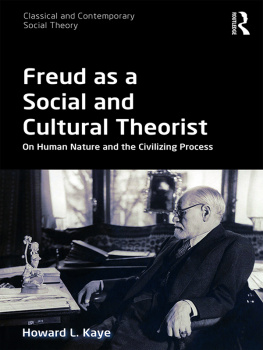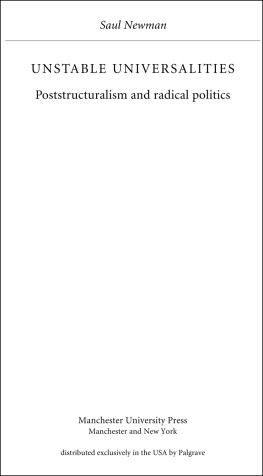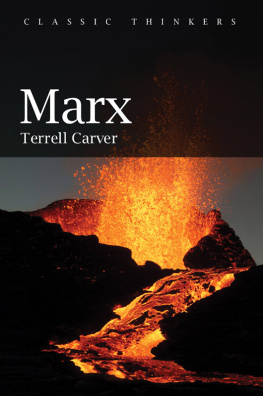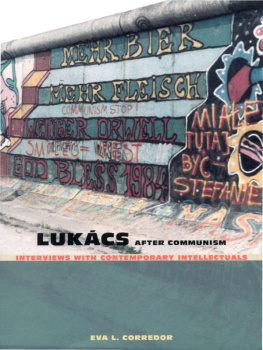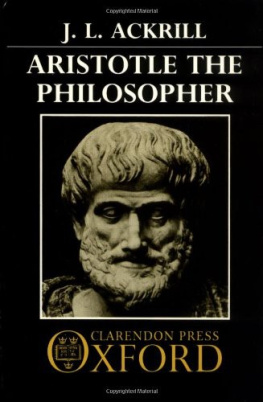THE POLITICS OF POSSIBILITY
The Radical Imagination Series
Edited by Henry A. Giroux and Stanley Aronowitz
Beyond the Spectacle of Terrorism: Global Uncertainty and the Challenge of the New Media, by Henry A. Giroux (2006)
Global Modernity, by Arif Dirlik (2006)
Left Turn: Forging a New Political Future, by Stanley Aronowitz (2006)
Stormy Weather: Katrina and the Politics of Disposability, by Henry A. Giroux (2006)
The Politics of Possibility: Encountering the Radical Imagination, edited by Gary A. Olson and Lynn Worsham (2007)
The University in Chains: Confronting the Military-Industrial-Academic Complex, by Henry A. Giroux (2007)
Forthcoming
Afromodernity: How Europe Is Evolving toward Africa by Jean Comaroff and John L. Comaroff
THE POLITICS OF POSSIBILITY
Encountering the Radical Imagination
Edited by
Gary A. Olson
and
Lynn Worsham
Foreword by
Henry A. Giroux
Rights to the interviews contained in this book are owned by JAC and the Association of Teachers of Advanced Composition. All rights reserved. No part of this publication may be transmitted or reproduced in any media or form, including electronic, mechanical, photocopy, recording, or informational storage and retrieval systems, without the express written consent of the publisher and JAC.
First published 2007 by Paradigm Publishers
Published 2016 by Routledge
2 Park Square, Milton Park, Abingdon, Oxon OX14 4RN
711 Third Avenue, New York, NY 10017, USA
Routledge is an imprint of the Taylor & Francis Group, an informa business
Copyright 2007, Taylor & Francis.
All rights reserved. No part of this book may be reprinted or reproduced or utilised in any form or by any electronic, mechanical, or other means, now known or hereafter invented, including photocopying and recording, or in any information storage or retrieval system, without permission in writing from the publishers.
Notice:
Product or corporate names may be trademarks or registered trademarks, and are used only for identification and explanation without intent to infringe.
Library of Congress Cataloging-in-Publication Data
Olson, Gary A.
The politics of possibility : encountering the radical imagination /
Gary A. Olson and Lynn Worsham ; foreword by Henry A. Giroux.
p. cm. (The radical imagination series)
Includes index.
ISBN 978-1-59451-444-9 (cloth) ISBN 978-59451-445-6 (pbk.)
1. Philosophy, Modern20th century. 2. Critical thinking.
3. Postmodernism. 4. Poststructuralism. I. Worsham, Lynn II. Title.
B804.O46 2007
190.905dc22
2007015065
ISBN 13 : 978-1-59451-444-9 (hbk)
ISBN 13 : 978-1-59451-445-6 (pbk)
Contents
Henry A. Giroux
Gary A. Olson and Lynn Worsham
Gary A. Olson and Lynn Worsham
Susan Searls Giroux
D. Diane Davis
Gary A. Olson and Lynn Worsham
Gary A. Olson and Lynn Worsham
For Jaspur,
who showed us the possibilities
Foreword:
When the Darkness Comes
and Hope Is Subversive
Henry A. Giroux
If it is the function of the public realm to throw light on the affairs of men by providing a space of appearances in which they can show in deed and word, for better and worse, who they are and what they can do, then darkness has come when this light is extinguished by a credibility gap and invisible government, by speech that does not disclose what is but sweeps it under the carpet, by exhortations, moral or otherwise, that, under the pretext of upholding old truths, degrade all truth to meaningless triviality.
Hannah Arendt
We live in a world in which fate and destiny more and more collapse into each other. Civic engagement appears increasingly difficult, if not impotent, as public space is privatized, the language of individualization obscures public issues, specific racial, religious, or sexual identities are criminalized, and a manufactured fatalism hides the complex network of social forces waging a fundamental assault upon the very conditions that make politics possible. Under such circumstances, common sense displaces critical thought, individual and social agency are emptied of political substance, and a collectively engaged democratic politics appears irrelevant in the face of an unquestioned moral authority that parades as destiny (Bauman, Liquid 212). Simultaneously, any viable sense of social responsibility disappears beyond the fortressed enclaves of ever more sequestered lives while various fundamentalisms assert their judgments of the world with a certainty that brands dissent and critical questioning as excessive and threatening. In the place of a politically vibrant public sphere, we have the demands of immensely powerful corporations and of the entertainment industry, which gives us the confessional tele-spectacles of Oprah, the televised shame culture of Jerry Springer (Beilharz 163), the increasing violence embedded in celluloid Hollywood spectacles, and the corporate values embedded in reality television shows. As society is increasingly organized around shared fears, escalating insecurities, and a new politics of terror, the mutually reinforcing dynamics of a market-based fundamentalism and a government that appears immune to any checks on its power render democratic politics both bankrupt and inoperable. The language of the market now offers the primary index of what possibilities the future may hold while jingoistic nationalism and racism hail its apocalyptic underbelly. As market relations become synonymous with a market society, democracy becomes both the repressed scandal of neoliberalism and its ultimate fear.1
In such a society, cynicism replaces hope, public life collapses into the ever-encroaching domain of the private, and social ills and human suffering become more difficult to identify, understand, and engage with critically. Zygmunt Bauman points out that the exit from politics and withdrawal behind the fortified walls of the private means not only that society has stopped questioning itself, but also that those discourses, social relations, and public spaces in which people can speak, exercise, and develop the capacities and skills necessary for critically encountering the world atrophy and disappear (Liquid 214). The result, as Jean Comaroff points out, is that in our contemporary world, post 9/11, crisis and exception has become routine, and war, deprivation, and death intensify despite ever denser networks of humanitarian aid and ever more rights legislation (n.p.). In addition, the depoliticization of politics and the increasing transformation of the social state into the punishing state have rendered possible the emergence of a new biopolitics of authoritarianism in which the fusion of power and violence increasingly permeates all aspects of government and everyday life.2 Such violence creates an ever-intensifying cycle, rendering citizens political activism dangerous and even criminal.
In opposition to the attacks on critical thought, engaged citizenship, the discourse of hope, and what Jacques Ranciere calls the erosion of the public character of spaces, relations, and institutions (299300), all of the authors in The Politics of Possibility share a common investment in Theodor Adorno and Max Horkheimers insistence to hang on to intellectual and real freedom and to ensure that thinking does not become immune to the suggestion of the status quo (243), thus losing its secure hold on possibility (Adorno 292). The contributors to this volume all believe that intellectuals should take political stands, be willing to cross boundaries, join questions of understanding and power, and bring into being with passion and conscience new ways of engaging with the world. In doing so, this diverse group of theorists intervene in the world on several registers. They seek to rescue the political possibilities of ambivalence from the powerful, the openings available in unstable places of enunciation, the radical unmasking of societys most pernicious myths, the struggle to restage power in productive ways, the promise of social agency from those places where it has been denied, and the ethical and political imperative to provide an accurate historical accounting of the racial state and racial power.3 The interviewees refuse dominant scripts of official authority and the limitations they impose upon individual and social agency, thus using spaces of exile and ambivalence as starting points from which to build unfamiliar, potential worlds. In the process of thinking seriously about structures of power, state formation, race, sexuality, technology, class, and pedagogy, the authors collected here never substitute moral indignation for the hard work of contributing to critical education and enabling people to expand the horizons of their own sense of agency, and they collectively challenge structures of power. These interviews bristle with a deeply rooted refusal to serve up well-worn and obvious truths, reinforce existing relations of power, or bid retreat to an official rendering of common sense that promotes a corrosive and demoralizing silence (Willis). What emerges in these distinct but politically allied voices is a pedagogy of disruption, critique, recovery, and possibility, one that recognizes that there is no viable politics without will and awareness, and that critical education motivates and provides a crucial foundation for understanding and intervening in the world.


